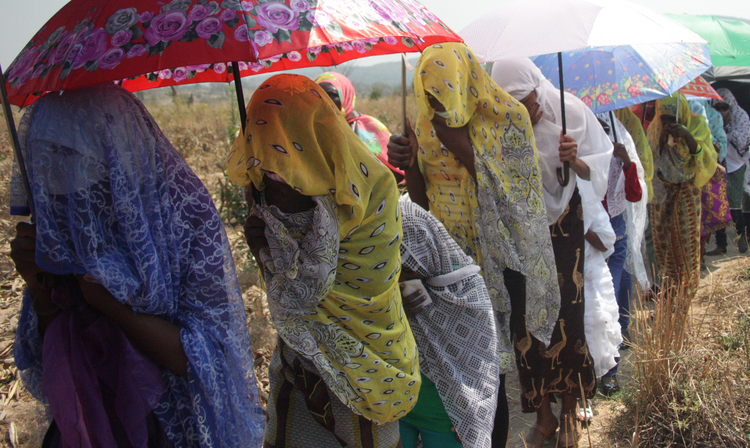
The Sunday Mail

IT was a peaceful Sunday morning in Mazowe as the Zuvarabuda community prepared for the chinamwali graduation celebrations last week.
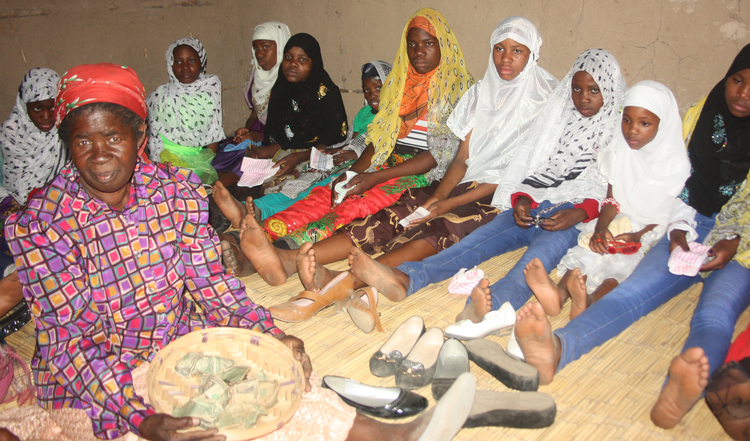
Abiti Kim sits with the girls before they have their final meal together
After being secluded from the community for 30 days, a total of 16 Muslim girls (anamwali) mostly from the Chewa and Senga tribes were set to graduate.
The youngest of them was a Grade One pupil while the oldest was 18 years old.
The final day of training began as early as 4am when the girls walked a distance of about five kilometres to a dam for a bath.
“The chinamwali leaders will scrub them really clean. The day of graduation is when they will use new things only because everything old has come to pass. We paid $15 for enrolment and then bought a towel, toothbrush, clothes and an umbrella.
“They will also have clean shaven heads. Everything has to be new when they come back into the community. So we had to buy the required items when we sent them there,” said Mrs Juliet Piki whose daughter was part of the group.
A baptism service was also conducted in line with the belief that the girls are beginning a new life.
“We have to restore our identity and preserve our culture; we are blacks, not whites,” enthused Mr Moses Nasho, a community member.
As all this was unfolding, exquisite meals were being prepared while community and family members sang, ululated and danced.
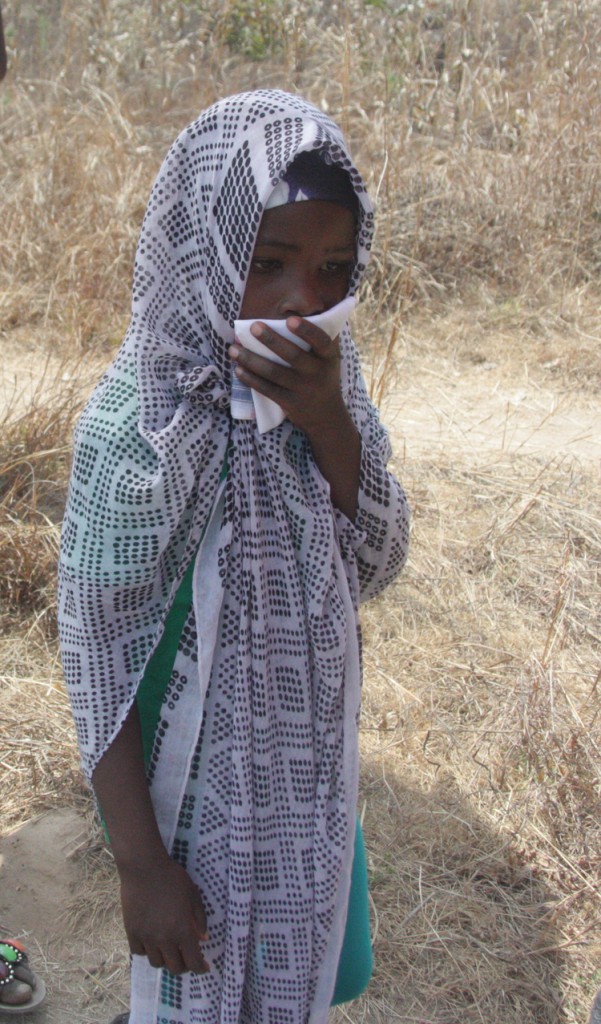
This young girl made up the 16 girls who went through 30 days in chinamwali
“We are celebrating that the children are back. It is our important culture, that is why I sent my children,” chipped in another lady whose four children had enrolled for the course.
Guided by the chinamwali leader – Abiti Kim – the girls walked like queens in a straight line while holding umbrellas above their heads.
Throughout the whole process, each and every one of them was also obliged to hold a cloth on her mouth to avoid responding to any chats or jokes.
“They are not supposed to talk to anyone until they are surrendered to their homes by Abiti Kim,” Mr Guy Kawombe explained.
His daughter was also among the graduands.
Reed mats were laid down at the centre of the homestead where the ceremony was being held. However, the girls could only sit down after they had been given a minimum of $2 each, a ritual called mchope.
Family members then stood behind their children as the community continued in song and dance while taking turns to place money on the girls’ laps.

The girls who are of Muslim faith make their way back to the homestead after baptism
“It is not their money. All of it goes to the elderly women who trained these girls. It’s a token of appreciation for the work that was done for that entire month,” explained Mr Kawombe. When the rituals were done, the girls were led into a hut for a meal before being dispatched to their respective homes to start a ‘new life’.
But people have always thought that chinamwali is only about imparting intimacy skills. Abiti Kim, who began training chinamwali 20 years ago, took time to dispel the myth.
She said that though intimacy issues are part of the course’s curriculum, chinamwali is not restricted to that.
A chinamwali graduate is expected to be smart, efficient in house chores, hard-working and well-behaved.
“A properly trained girl should know that she has to be awake at 4am or by 5am. You cannot come out of Chinamwali and still be in bed after 6am, that is not possible. They can sleep around midnight and be up by 4am to begin the day,” she said.
“We teach these children good morals – to respect their parents, to know who is a sister, a brother and an elder out there. Each one of those people has to be accorded their unique respect. So they (anamwali) have to know their place when they encounter different people. They have to know how to behave and live within families and communities,” Abiti Kim explained.
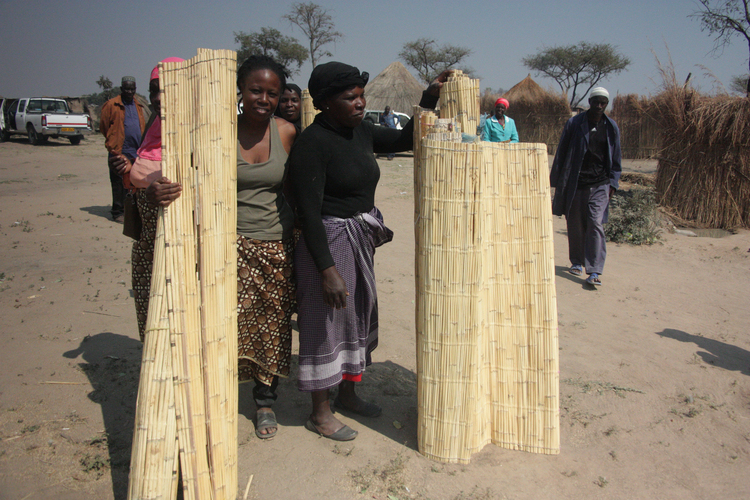
These two women prepare for the return of 16 girls who enrolled for the 30 day chinamwali last Sunday in Mazowe
She said parents can write down their grievances when their child enrols for chinamwali so that it can be dealt with by the chinamwali leaders.
“Those that are notorious for misbehaving receive thorough hiding during the training,” she said.
“That little child you saw graduating will never be the same again. As little as she is, she now knows how to behave in the house and in the community. She is completely transformed,” said Abiti Beaton, one of the chinamwali leaders.
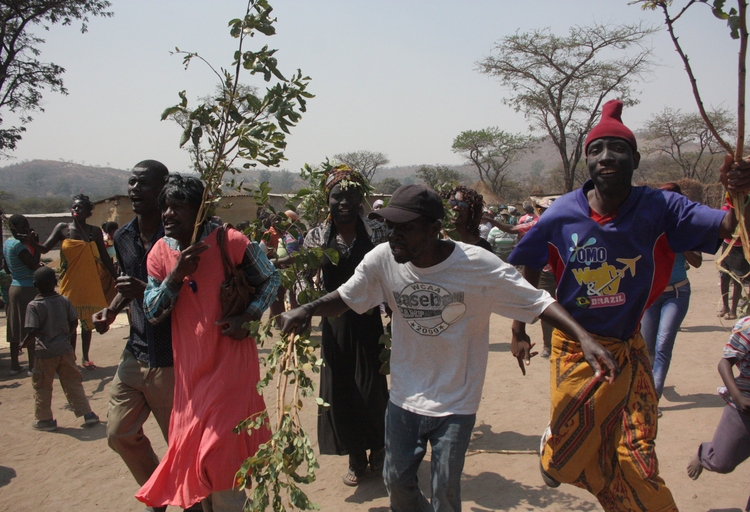
People of the Zuvarabuda community celebrate the comeback of their children from chinamwali – Pictures by Prudence Mpofu
Speaking on the girls’ age differences, Abiti Kim said that during training, the girls were at times separated accordingly to ensure that the younger ones did not get information on intimacy issues.
“If we have married women who had not gone through chinamwali, we separate them from the younger girls. They are allowed to go back to their homes on a daily basis and cook for their husbands. We do not treat them as the young girls.”
Abiti Kim also revealed that they do not circumcise the girls as many people think. “Circumcision is for men only,” she said.



